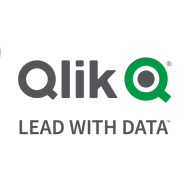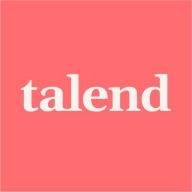

Talend Open Studio and Qlik Compose compete in the realm of data integration and management. Talend Open Studio holds the upper hand in flexibility and connectivity, making it suitable for smaller companies and complex transformations.
Features: Talend Open Studio is known for robust connectivity with over 900 connectors, drag-and-drop functionality, and code visibility for debugging. It also offers strong community support and easy scalability. Qlik Compose shines with its automation capabilities and quick code generation for data warehousing. It simplifies data modeling and allows seamless data replication.
Room for Improvement: Talend Open Studio could enhance installation configuration, improve consistency between its versions, and provide better non-Java user support. Resource consumption remains a concern. Qlik Compose could improve its monitoring and scheduling features, enhance data transformation capabilities, and offer more integration options with non-standard systems. Users also desire better documentation and training resources.
Ease of Deployment and Customer Service: Talend Open Studio supports various deployment options including on-premises and cloud environments but relies heavily on community forums for support, which can be challenging for urgent needs. Qlik Compose provides flexible deployment but faces criticism for user support, which could be more user-friendly and responsive.
Pricing and ROI: Talend Open Studio, as an open-source solution, provides an economical entry point, appealing to smaller companies. Its licensed versions can be costly but offer necessary features for enterprise-level operations. Qlik Compose, considered expensive due to pricing based on data volume, provides significant value by reducing development time. Both products positively impact ROI by optimizing data integration and analytics tasks.
| Product | Market Share (%) |
|---|---|
| Talend Open Studio | 2.8% |
| Qlik Compose | 0.9% |
| Other | 96.3% |


| Company Size | Count |
|---|---|
| Small Business | 3 |
| Midsize Enterprise | 3 |
| Large Enterprise | 6 |
| Company Size | Count |
|---|---|
| Small Business | 22 |
| Midsize Enterprise | 13 |
| Large Enterprise | 18 |
Qlik Sense is a powerful business intelligence tool that offers a range of features to help organizations make faster and more informed decisions. Its primary use cases include operational and financial dashboards, self-service reporting, and centralized access to cross-functional reports. The solution is praised for its mobile platform, ease of use, data-sharing capabilities, and extensibility.
Qlik Sense has helped organizations improve data literacy, reduce time consumed in complex reports, and provide widely available MI to senior stakeholders. It also enables self-service analytics, improves data quality and governance, enhances collaboration, and reduces costs.
Talend Open Studio is a free, open source ETL tool for data integration and Big Data. The solution enables you to extract diverse datasets and normalize and transform them into a consistent format which can be loaded into a number of third-party databases and applications.
Talend Open Studio Features
Talend Open Studio has many valuable key features. Some of the most useful ones include:
Talend Open Studio Benefits
There are several benefits to implementing Talend Open Studio. Some of the biggest advantages the solution offers include:
Reviews from Real Users
Below are some reviews and helpful feedback written by PeerSpot users currently using the Talend Open Studio solution.
Elio B., Data Integration Specialist/CTO at Asset messages, says, "The solution has a good balance between automated items and the ability for a developer to integrate and extend what he needs. Other competing tools do not offer the same grade of flexibility when you need to go beyond what is provided by the tool. Talend, on the other hand, allows you to expand very easily."
A Practice Head, Analytics at a tech services company mentions, “The data integration aspect of the solution is excellent. The product's data preparation features are very good. There's very useful data stewardship within the product. From a technical standpoint, the solution itself is pretty good. There are very good pre-built connectors in Talend, which is good for many clients or businesses, as, in most cases, companies are dealing with multiple data sources from multiple technologies. That is where a tool like Talend is extremely helpful.”
Prerna T., Senior System Executive at a tech services company, comments, “The best thing I have found with Talend Open Studio is their major support for the lookups. With Salesforce, when we want to relate our child objects to their parent object, we need to create them via IDs. Then the upsert operation, which will allow you to relate a child object to the event, will have an external ID. That is the best thing which keeps it very sorted. I like that.”
An Implementation Specialist, Individual Contributor at a computer software company, states, “I can connect with different databases such as Oracle Database or SQL Server. It allows you to extract the data from one database to another. I can structure the data by filtering and mapping the fields.” He also adds, “It is very user-friendly. You need to know the basics of SQL development or SQL queries, and you can use this tool.”
PeerSpot user Badrakh V., Information System Architect at Astvision, explains, "The most valuable features are the ETL tools."
We monitor all Data Integration reviews to prevent fraudulent reviews and keep review quality high. We do not post reviews by company employees or direct competitors. We validate each review for authenticity via cross-reference with LinkedIn, and personal follow-up with the reviewer when necessary.